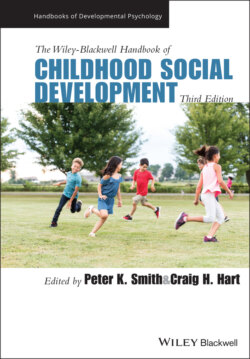Читать книгу The Wiley-Blackwell Handbook of Childhood Social Development - Группа авторов - Страница 69
Darwin’s Disciples–G. Stanley Hall, John Bowlby, and Mary Ainsworth G. Stanley Hall–getting Darwin wrong
ОглавлениеFollowing Darwin’s clarion call, a number of prominent figures began to make careful studies of child development and to consider these within an evolutionary framework. The first major figure to take this up was also arguably the founder of developmental psychology in North America. Granville Stanley Hall, who in 1878 gained the first PhD in psychology awarded by an America university, was greatly influenced by Darwin’s writings and attempted to bring evolutionary theory to our conceptions of child development. Hall is particularly remembered for developing the concept of adolescence as an important period of transition. He described the difficulties that adolescents face at this time in their lives and popularized the German term “Sturm und Drang” (“Storm and Stress”) to characterize this. Hall considered that, given the right guidance, adolescents naturally gravitate to more altruistic behavior during this period (Hall, 1904), a view which is widely held today (Taylor & Workman, 2018).
Despite his detailed work on adolescence, in many ways Hall’s writings are seen today as a false start for the development of an evolutionary understanding of child development. Hall’s conception of evolution, while incorporating the process of natural selection, also brought Ernst Haeckel’s recapitulation theory into his writings (Barresi & Gilbert, 2020). He believed that ontogeny recapitulates phylogeny, with the young of a species passing through the “evolutionary stages” of its ancestors. To Hall, during their development, children pass through various stages of mental ability, each the equivalent of a “lower species.” This view continued to appear in many writings on child development well into the 20th century. Hall’s conception of child development also accommodated Jean‐Baptiste Lamarck’s theory of evolution through inheritance of acquired features. In particular, he considered that memories formed by adults could be passed on to their children. In summary, while Hall did attempt to integrate the concept of evolution into our understanding of child development, unfortunately his own understanding of natural selection led to a number of misconceptions becoming widespread during the early years of the 20th century; this inadvertently helped to delay the advancement of an evolutionary developmental psychology.
